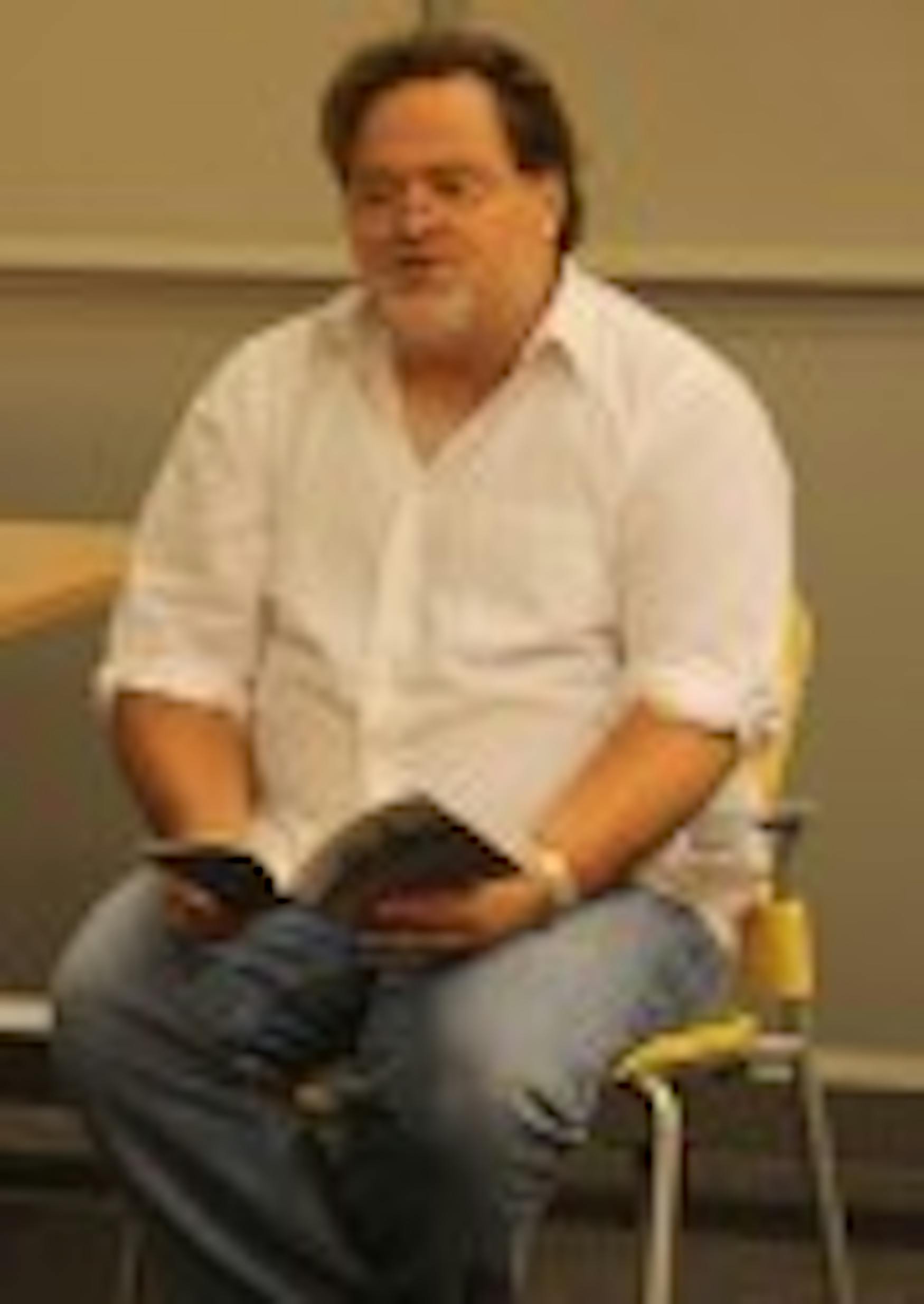Mandel Center welcomes author Michael Klein
"We should honor everything about our lives." This was just one of the many pieces of advice that Michael Klein, author of two memoirs and two books of poetry, offered up during the course of his poetry reading event last Tuesday. The event, put together by the School of Night and co-sponsored by the Mandel Center for Humanities, took place in the Mandel Center Reading Room and was attended by faculty and students. While promoting his new book of poetry, then, we were still living, Klein interwove his readings with anecdotes, reflections on the art of writing and blunt advice on life. He believes that people should appreciate everything around them, a view which prompted him to write a poem about the Franklin D. Roosevelt Drive-commonly known as the FDR-a highway on the east side of Manhattan that is always clogged with traffic. As a New Yorker, he hates the highway and always hears complaints about it, which made him want to find some redeeming quality to then write a poem about. Tidbits like these made Klein's poetry reading that much more personal and engaging.Klein started off the night by reading some of his older poems, including "5 Places to Have Sex," a poem about sexual fantasies, which he would be presenting at a gay and lesbian potluck reading at City College in New York the following day. He was very frank about his sexuality, joking that the reason he writes is so that he can afford cosmetics: "I like beauty products. . I'm gay." He also joked about his discomfort with reading a graphic poem aloud to an audience of strangers but said that he would do so anyway. He read only the first portion of the poem, which tells the story of a man who encounters another man on the train reading a book to whom he is attracted. The second man continues to read while getting more and more aroused by the first man's presence. The first begins to massage the other, and the poem culminates in their mutual satisfaction.
Listening to Klein read is an experience unto itself, separate from enjoying the content of his poems, which is beautiful in its own right. His tone is extremely lyrical and melodic, emphasizing certain words and stretching out specific syllables. He imbues his poems with these same qualities, since he believes a large part of writing is listening to the sounds of words and the flow of sentences. Sometimes, he likes to listen to classical music while writing, as he did with his memoir, Track Conditions, which derives its title from his stint as a groom for the award-winning racehorse Swale. The music "informed the language" of the book, although, he admitted, sometimes listening to music can be too distracting for him while writing. In the question-and-answer session following his reading, he explained that he is "always listening; not thinking as much as I am listening."
Prompted by questions, Klein talked about his writing and editing process. He believes everything should be revised and says that only two of the many poems he has written over the years have not been edited. When writing prose, he writes paragraphs in no particular order and then arranges them later. Regarding poetry, he is often more focused on word order than on the words themselves, since the words either feel right or they don't, but the word sequence is what gives the line its structure. A disdainer of clichés, he strives to come up with as many original lines as he can and suggests doing an Internet search for a line to see if it comes up before using it in a poem. He makes some exceptions, however, such as the line, "The body is everywhere," which he borrowed from a friend's work for his own poem "Ghosts." From the start, he knew that his poem would end on the line, "The body is everything." Klein says that sometimes you know what the arc of a poem will be-where it will start and where it will end-even before beginning it. Another one of his poems with a poignant conclusion is "The Gift of Prophesy," which tells the story of a person who is continuously telling half-truths to avoid the truth. After the reading, Klein was asked to repeat the last line of this poem, a true testament to its power. It ends on the line, "What nobody/Can say, I am living of something."
At the end of his reading, Klein took a bow. After taking several questions, he wrapped up the night with some reflections on the process of creating a one-man show (a process he went through with his act 10,000 Men Have Touched Me) and advice for budding writers, to which the community of English and Creative Writing teachers present contributed a great deal. At the conclusion of the presentation, copies of Klein's latest book of poetry were sold, and he talked one-on-one with anyone who was interested, autographing books as well. The reading was infused with humor, creativity and honesty, making it a pleasure to attend, and hopefully he will be returning to Brandeis soon with more writing to share.



Please note All comments are eligible for publication in The Justice.